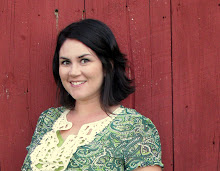
Last year was our first garden, and beginning was very daunting! When to start, how to plant, how to avoid pests, what to choose, how much to water.....there's so much to learn in the beginning. But begin you should, because gardening has so many benefits. Most of our food travels an average of 1500 miles before it gets to our table. This requires the produce to be picked before it is ripened, which in turn makes it less nutritional, and frankly bland. Growing your own produce will help save billions of gallons of gasoline, a non-renewable source of energy which is growing scarcer by the minute. Also, by growing your own produce organically, we can collectively reduce the amount of pesticides that eventually run off into our water sources. Victory Gardens are being revived all over the country! So where can you begin? Here are some of my recommendations:
There are so many great resources out there, you can get lost! My two favorite books that I am constantly returning to are: Square Foot Gardening by Mel Bartholomew and The Gardener's A-Z Guide to Growing Organic Food by Tanya L.K. Denckla. As a busy mom of 4, working at home, I don't have much time to fuss with a garden...it's just not an option. The Square Foot Gardening Method is so easy to grasp, and learn, which makes it perfect for beginners. No soil testing, or thinning plants, and even weeding is nearly non-existent. There are also a plethora of gardening forums and helpful websites. Some of my favorites:

Decide what you would like to grow by taking into account what you love to eat. Our family eats tons of squash, zucchini and green beans. I knew these would be the staples of our garden. However, your space or climate may restrict what you can grow. We don't have room for corn, so this is something I buy in bulk at our farmer's market, and then can & preserve. Read up on your favorite veggies and what it takes to grow them. You will start some plants by directly sowing the seed outside, but others you will either need to buy as transplants, or start indoors yourself. If something seems too complicated for your first year, commit to buying them locally and focus on a small amount at first. Last year we started with 4 raised beds, and will expand to 8 this year, along with some blueberry bushes and potted herbs.

Start
Once you've decided what you want to grow, next comes the when. You Grow Girl has an amazing spreadsheet that will help determine your planting times specific to your climate zone. Prepping your ground comes next. For the SFG method, it's as simple as building some raised beds, and making a soil mix affectionately dubbed “Mel's Mix”. Mel's mix includes 1/3 vermiculite, which normally is sold in small bags. Call around to your local, family owned garden centers to see if you can buy this in bulk. This will make it easier to mix, more cost-effective, and create less waste. Also, call your local extension agent for local compost sources. There are local sources that will deliver a load of compost, often for less than you would spend on buying by the bag at a box store. Freecycle is a great source for wood scraps that can be used for your raised beds. Finally, plant! Your local farmer's market is a good place to buy plants to transplant in your garden. Your local nursery will also have a wide variety to choose from, as well as seeds. Other trusted seed resources:

Maintain
Commit to spending ½ hour, to an hour each day to maintaining your garden. Pests will come, but the best defense is a good offense! Buy resistant varieties, and use row covers whenever possible. Watching your garden carefully will help you stay on top of disease and pests before they are unmanageable. Visit Garden Forum for specific remedies to problems you may encounter.
I hope you're inspired to start a garden, whether it's just some tomatos and herbs on your porch, or several beds in your backyard. Next post we'll discuss some advanced gardening skills, including composting, water collection and organic pest control. Get started today!








11 comments:
Great post with great links. Thanks!
Hey, you didn't list The Cook's Garden. It is a great place to order fun seeds from. I hope you'll check it out!
Cedaracrelady,
I'll definately check it out! Thanks for the reccomendation!
I'm making some changes in my garden this summer, mainly added at using the space more efficiently. Compost is a given (check out my blog title!), and I'm adding a rain barrel this year. Our 21st century "victory gardens" look a little different from those in the 40s, I'd wager.
The square gardening is exactly what I am going to try this year. It has been many years since my last garden, so this will be a simple way to get back in the swing of things. Thanks for the great post!
I'm starting my first veggie garden this year so thanks for the info!
virtualredhead: Some of your points are certainly true, but flippantly dismissing gardens is illogical. Not all things are more economical to grow, and not all methods are equal either. For example, I do not grow cabbage because I can buy it for 29c at my farmer's market in season. However, growing my own tomatoes from seed, organically is MUCH cheaper. When you plant wisely, you won't use much water, and won't spend money on fertilizer or pesticides. Supporting your local farmer who is devoting most of his/her time to farming is a fantastic idea, but having a backyard garden is not a total loss. Value is not just found in money saved at the grocery store, but also in intrinsic value, such as fresher produce, with more nutrients to boot. Also, I for one am not thrilled about all the GM foods that are produced, and like knowing exactly where my seeds and backyard veggies are coming from. Large scale farming and bio-tech options are not appealing to a great many Americans. Wal-Mart and your 99c store are ridiculous second options for people who are concerned about their local economy, and the damage being done to this country by these box stores that export all the jobs and import all the food. I won't have anything to do with it.
I've got to chime in here. Virtualredhead unfortunately has a defeatist attitude, and it's these kinds of thinkers that are perpetuating the state we are in. I have a feeling he thinks the world owes him something. Insulting? That's ridiculous. If you are not in the position to do this yourself it's unfortunate, but if having a garden will enrich someone's life they shouldn't not do it just because someone else doesn't have the resources, time, energy, or inspiration to do it themselves. The statement that this idea is naive is astounding, taking into account the fact that people have been putting it into action relatively since the beginning of time. Personal gardening is in fact the essence of simplicity that I feel our world is sorely lacking. It's the complicated system we have these days that has sadly hardened the soul. Wal-mart? I object.
Great post about recession/victory gardens. I have to totally disagree with virtualredhead. We've been eating food we grew and preserved last summer and fall all winter. I cannot believe how cheap it is to stick some pumpkin seeds in the ground, water them less than a lawn, and enjoy them in a pie and soup in March.
Mama- you rock! With the rising costs of just about everything including produce- it just makes sense to plant and grow your own food. It is not only healthier and more sustainable as a way of life, but I also have 4 kids and working alongside them in the garden has been a learning experience, a blessing and also creates incredible chances to inspire them to be the kind of people who are not just takers, but givers. When you have a surplus, you can share. When you have a garden, it creates community. Isn't that what it's all about!?
This is such a great post; We all will benefit from it. Thanks!
Post a Comment